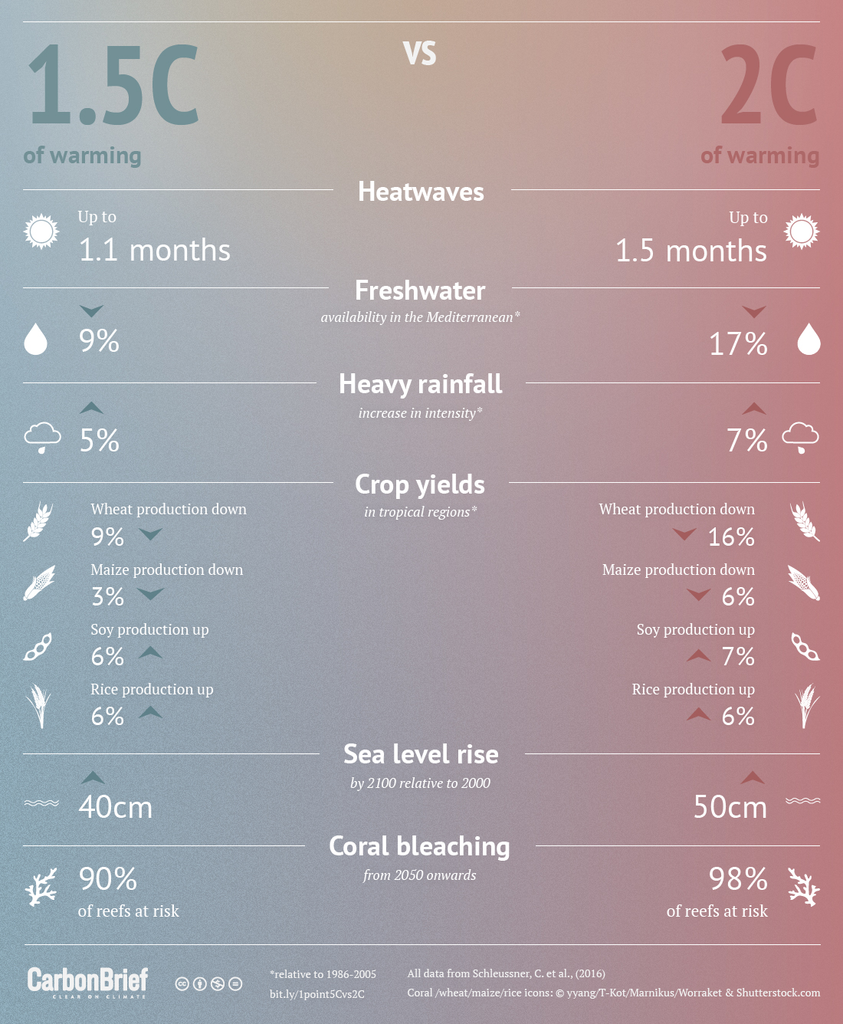New climate change report seen as final warning to keep global warming to 1.5°C
***Photo/video opportunity: 28 oil drum climate percussion protest by Brussels activists.
Midday-2pm on 6 October, European Parliament esplanade.
In the presence of Swedish schoolgirl activist Greta Thunberg.
Contact: Karen Naessens: +32(0)472 117834, [email protected]
On 8 October, the world’s leading climate change scientists will publish a long-awaited report showing how the world can limit global temperature rise to 1.5°C to avoid the worst effects of climate change.
The report comes as the European Union prepares to review its long-term climate strategy for 2050, in line with commitments made under the 2015 Paris climate agreement to keep global warming to 1.5°C.
The special report by the United Nations’ Intergovernmental Panel on Climate Change (IPCC), which will be released in Incheon, Korea, is expected to confirm that it is still possible to limit global warming to 1.5°C, but that all governments around the world need to act fast. The IPCC is also expected to outline the consequences of climate change, including the big differences between the impacts that the world will see with 1.5°C and 2°C of warming.
For more information on what to expect from the IPCC report, please see Greenpeace International’s preview media briefing and the official IPCC leaflet.

EU climate change impact
While the report will not give country-specific findings on the impacts of different levels of warming, it will assess what the regional impacts will be.
Even at just over 1°C of global temperature increase, the EU is already experiencing the impacts of climate change. Most recently, the 2018 summer heatwave saw temperature records broken in several EU countries, including Germany, Spain, Belgium, Sweden, Portugal, Denmark and Finland. Unprecedented fires raged inside the Arctic Circle, while many countries experienced drought.
Farmers across Europe lost more than 12% of their cereal crops this year, with an inevitable impact on the prices of basic foods like bread and pasta. Meanwhile, nuclear power plants were forced to shut down completely or partially in five EU countries, because the water needed to cool the reactors was too hot.
EU commitments
In October 2014, EU leaders agreed the EU’s three climate and energy targets for 2030: to cut greenhouse gas emissions by at least 40% (based on 1990 levels), to increase the share of renewables to at least 27% and to cut energy use by 27% (compared to projected use). These commitments are based on an agreed long-term objective for the EU to cut its carbon emissions by 80-95% by 2050.
Earlier this year, the EU raised its 2030 renewables target to 32% and its energy efficiency target to 32.5%. The European Commission indicated that these adjustments mean the overall 2030 carbon target should be raised to at least 45%, but this move has been opposed by Germany and Hungary.
The Commission has acknowledged that the EU’s current 2030 climate and energy targets are not high enough to meet Europe’s commitments under the Paris climate agreement, but is now expected to focus its efforts on revising its long-term climate strategy for 2050, as requested by EU governments in March 2018.
The Commission will release a draft plan on 28 November, less than a week before the start of the UN climate conference that will take place in Katowice, Poland. EU heads of state and government are expected to agree on the EU’s final long-term strategy in 2019.
European environment ministers will also meet in Luxembourg on 9 October, the day after the release of the IPCC’s 1.5°C report, to agree the EU’s negotiating mandate for the UN climate conference.
Battle lines are drawn
Germany, which is focused on defending the interests of its coal and car industries, has opposed stronger EU action against climate change, emboldening the so-called Visegrád group of Poland, Hungary, Slovakia and the Czech Republic.
Other countries – including the Netherlands, France, Luxembourg, Portugal, Sweden, Denmark, Finland, Spain and the UK – are generally more open to greater climate ambition.
In September, media reports revealed a leaked memo from Europe’s biggest industry lobby group detailing its plans to challenge EU action on climate change. The leak has begun to expose a business rift on climate change, with some corporations eager to reap the benefits of a decarbonised economy.
Acts of hope
As governments and businesses dither, people across Europe and beyond are turning despair about climate change into hope. From mass protests against the destruction of the ancient Hambach forest to make way for a lignite mine in Germany, to community solar power projects that fight energy poverty in Greece, to an individual act of defiance by a Swedish girl boycotting school until politicians act, people are rising up and calling on governments to step up action against climate change.
***Photo/video opportunity: 28 oil drum climate percussion protest by Brussels activists.
Midday-2pm on 6 October, European Parliament esplanade.
In the presence of Swedish schoolgirl activist Greta Thunberg.
Contact: Karen Naessens: +32(0)472 117834, [email protected]
Contacts:
Brussels
Tara Connolly – Greenpeace EU climate and energy policy director: +32 (0)477 790416, [email protected]
Greenpeace EU press desk: +32 (0)2 274 1911, [email protected]
Incheon, Korea
Maria Elena De Matteo – communications, Greenpeace East Asia: [email protected], +82 106 829 0949
Images and videos showing impacts of climate change are available here.
For photo requests contact the Greenpeace picture desk hotline: +31 207 18 2471
For video requests the Greenpeace video desk hotline: +31 20 718 2472
For breaking news and comment on EU affairs: www.twitter.com/GreenpeaceEU
Greenpeace is an independent global campaigning organisation that acts to change attitudes and behaviour, to protect and conserve the environment and to promote peace. Greenpeace does not accept donations from governments, the EU, businesses or political parties.
